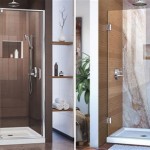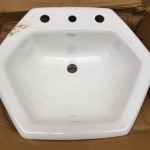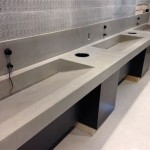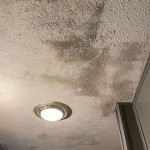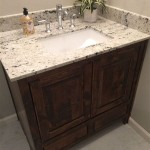Does All Bathroom Window Need to Be Tempered Glass?
Bathrooms often feature windows, whether for natural light, ventilation, or aesthetic purposes. However, these windows present unique safety considerations due to the wet and potentially slippery environment. While standard glass can be used in bathroom windows, tempered glass is generally recommended for increased safety and durability. This article explores the reasons why tempered glass is often preferred in bathrooms and the specific situations where it is essential.
Safety and Strength
Tempered glass is significantly stronger than regular glass. It undergoes a heat treatment process that increases its tensile strength and impact resistance. This makes tempered glass less likely to shatter into large, sharp shards upon impact, reducing the risk of serious injury. In a bathroom environment, where spills and accidents are common, tempered glass offers a crucial layer of safety. A sudden impact, like a dropped soap dish or a child bumping into the window, is less likely to result in dangerous shards of glass, safeguarding occupants from potential harm.
Compliance with Building Codes
Building codes often mandate the use of tempered glass in certain applications, including bathroom windows. These codes are designed to ensure public safety and prevent accidents. Local building codes vary, so it is crucial to consult with a building professional or check the specific requirements in your area. Ignoring these codes can lead to fines and legal complications, emphasizing the importance of complying with local regulations regarding glass safety.
Specific Situations Where Tempered Glass Is Essential
While tempered glass is generally recommended for bathroom windows, there are specific situations where it is particularly essential:
1. Windows near bathtubs and showers
Windows located close to bathtubs and showers are exposed to constant moisture and potential splashes. The combination of wet surfaces and potentially slippery floors increases the risk of falls and accidents. Tempered glass, with its increased strength and resistance to shattering, provides an extra layer of safety in these areas.
2. Windows that are frequently opened
Windows that are frequently opened for ventilation or to access outside areas require additional consideration. Frequent opening and closing can put stress on the glass, and tempered glass is better equipped to withstand these repetitive movements. Its increased durability minimizes the risk of cracking or shattering, ensuring long-lasting functionality.
3. Windows within reach of children
Bathrooms often serve as spaces for children, so windows should be designed with their safety in mind. Tempered glass, with its reduced risk of shattering into sharp shards, provides a safer alternative to standard glass, especially for windows within easy reach of curious young ones.
Conclusion
Tempered glass offers numerous advantages over standard glass in bathroom windows, enhancing safety, strength, and compliance with building codes. While not all bathroom windows require tempered glass, specific situations, such as the proximity to bathtubs, frequent opening, and access by children, necessitate its use. Consulting with a building professional or checking local building codes can help determine the appropriate glass type for your bathroom windows, ensuring a safe and functional environment for all occupants.

Where Is Tempered Glass Required Your Ultimate Guide Building Code Trainer

When To Use Tempered Safety Glass

Custom Glass Do I Need Tempered In My Bathroom

Bathroom Window Safety Glass Tempered In Bathrooms Checkthishouse

Bathroom Window Safety Glass Tempered In Bathrooms Checkthishouse

Where Is Tempered Glass Required Your Ultimate Guide Building Code Trainer

Tempered Glass Behind Toilet Building Codes And Compliance Chieftalk Forum

Is Tempered Glass Required Here Interior Inspections Internachi Forum

Safety Glass A Quick Reference Guide

Your Guide To Tempered Glass Avi Windows Doors
Related Posts
